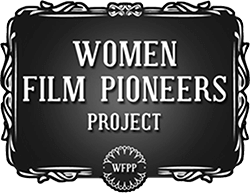CFP: The Actress-Manager and Early Film
CFP: The Actress-Manager and Early Film – a special issue of Nineteenth Century Theatre and Film, guest edited by WFPP contributors Vito Adriaensens and Victoria Duckett
Deadline for submissions: January 29, 2018
As Jacky Bratton’s recent monograph The Making of the West End Stage: Marriage, Management and the Mapping of Gender in London, 1830- 1870 has demonstrated, actress-managers were instrumental in shaping and developing the theatrical culture of this period. We wish to further develop this field of research through a special issue of Nineteenth Century Theatre and Film dedicated to this topic. While the actor-manager position may have been dominated by men, women such as Eliza Vestris, Sara Lane, Mrs. John Drew, Sarah Kirby Stark, Laura Keene, and Marie Effie Wilton were highly successful in acting as well as managing and operating major theatres in important urban centers, for example, the Olympic, Covent Garden, the Lyceum, the Queen’s Theatre in London, Laura Keene’s Theatre in New York, and the Arch Street Theatre in Philadelphia. The Edwardian author Leonard Merrick devoted an entire novel to a young actor’s pursuit of the coveted position of actor-manager, summing up its advantages with the rhetorical question: ‘When he is his own Manager, why not produce things that are worthy of him?’. Echoing Merrick’s sentiments, we wish to explore how actress-managers were able to showcase their talents in prominent roles of their own choosing.
We invite articles on all aspects of this rich topic, and particularly welcome essays that consider actress-managers who crossed over into film at the beginning of the twentieth century, lucratively combining a stage career with a silver screen presence and thereby defying the cliché that the two arts were at odds with one another. Ellen Terry, Eleonora Duse, and Sarah Bernhardt are among the better-known incarnations of these multimedia stars. We welcome articles that consider the roles these actress-managers brought to film; the contemporaneous discourse on their move to the screen; how their status and managerial position influenced production and direction; how their star status complicates notions of authorship; in what ways knowledge about their acting and business interests impacts our understanding of these films; where these actress-managers stood vis-à-vis male counterparts crossing over; and how their entrepreneurial engagement in new commerce, new markets, and new forms of ‘theatre’ might help us interpret the nascent relationship between stage and screen. We invite submissions across geographical boundaries and from and between different stage and screen cultures.
Submission information:
Completed articles should be sent to both editors by 29 January 2018 for a May 2018 publication. Articles should be 6,000 – 8,000 words long and formatted according to the submission guidelines available on the NCTF website: http://journals.sagepub.com/home/nct.
Please submit articles to both guest editors: Victoria Duckett, Director of Entertainment Production and Lecturer in Screen (Film and Media) in the School of Communication and Creative Arts at Deakin University (victoria.duckett@deakin.edu.au) and Vito Adriaensens, Visiting Scholar and Adjunct Assistant Professor at Columbia University and Researcher at the Research Centre for Visual Poetics at the University of Antwerp (va2329@columbia.edu). For informal inquiries, please e-mail Victoria Duckett and Vito Adriaensens at the above e mail addresses.
